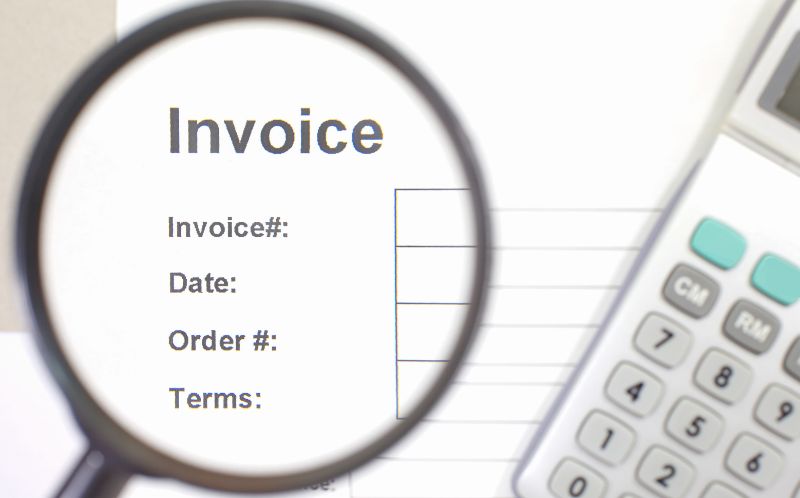Admin •
Feb. 2, 2024
Master Invoice Financing For Immediate Business Growth: Seamless Cash Flow Solutions
Invoice financing is an oasis in the desert that quenches cash flow woes. As a business owner, you've undoubtedly faced the draining anxiety of unpaid invoices — money you've rightfully earned but can't access. The solution is closer and simpler than you think.
What is Invoice Financing?
Invoice financing is a way for businesses to borrow money against the amounts due from their customers. Businesses can get cash immediately instead of waiting for clients to pay their invoices.
Some business owners would say It's your ticket to accessing funds quickly that are tied up in outstanding invoices. In simple terms, it's a way to borrow against the amounts due from customers.
- Swift Cash Flow: With invoice financing, businesses can access 80-90% of the invoice value immediately. No more waiting for 60 or 90 days.
- A Boon for SMEs: It's particularly beneficial for small to medium enterprises (SMEs). When cash flow is crucial, invoice financing bridges the gap.
Why is it a Game-Changer?
- Business Growth: Invest in growth opportunities without waiting for customers to pay.
- Flexibility: Unlike traditional loans, you control which invoices to finance.
- Empathy in Business: As a group that has been in the trenches, we've felt the weight of cash flow problems. Trust me, it's not just a transaction. It's about understanding your struggles, being there, and providing a timely solution
Benefits of Invoice Financing:
1. Immediate Cash Flow: Businesses can access funds without waiting for clients to pay.
Key Takeaway: Help address short-term liquidity needs.
2. No Need for Personal Property as Security: Invoice financing typically doesn't require traditional collateral.
Key Takeaway: Reduces personal risk and liability for business owners.
3. Non-debt Option: It's an advance against unpaid invoices, not a loan.
Key Takeaway: Doesn't increase the business's debt obligations.
4. Larger Advances: Traditional invoice financing can offer a bigger upfront advance.
Key Takeaway: Useful for significant capital needs.
5. Mitigates Cash Flow Problems: Addresses barriers to corporate success due to liquidity issues.
Key Takeaway: Provides a consistent cash flow, ensuring smooth operations.
Drawbacks of Invoice Financing:
1. Costly: Immediate access to cash often comes at a higher cost.
Key Takeaway: Businesses need to weigh the cost against the immediate need for funds.
2. Dependence on Client Payment Habits: If clients delay or default on payment, it could be costly.
Key Takeaway: The success of this method depends largely on the reliability of clients.
3. Possible Customer Relationship Strain: If using factoring, third parties collecting from customers can strain relationships for many different reasons, like late payments.
Key Takeaway: Communication with clients about the process is crucial.
4. Potential for Over-Reliance: Businesses might become too dependent on invoice financing.
Key Takeaway: It's essential to diversify financial strategies to avoid over-dependence.
5. Not Suitable for All Businesses: Those with low-profit margins might find the costs prohibitive.
Key Takeaway: Businesses should evaluate if the costs align with their profit models.
Potential challenges include higher costs compared to traditional loans, dependency on client payment habits, and the possibility of becoming over-reliant on this financing method.
To all business owners out there, we've been in your shoes. Invoice financing isn't just another jargon-filled financial product. It's a tool, a solution, and a way forward. Remember, cash flow is the lifeline of your business. Protect it, Nurture it, and most importantly, use it wisely!
Frequently Asked Questions
-
How does invoice financing differ from traditional loans?
Unlike traditional loans, invoice financing is tied to specific invoices and usually doesn't require collateral in the traditional sense. Approval and rates often depend on the creditworthiness of the invoiced client, not just the borrowing business.
-
Is invoice financing the same as factoring?
Not exactly. While both provide capital based on outstanding invoices, factoring involves selling invoices to a third party at a discount, whereas invoice financing is more like a cash advance on what's owed.
-
What are the costs associated with invoice financing?
Costs can vary but usually include a percentage of the invoice amount and other possible fees. It's important to read agreements carefully to understand all potential costs.
-
How quickly can I receive funds through invoice financing?
This can vary by provider, but many businesses can receive funds within 24-48 hours of approval.
-
Do my customers know if I use invoice financing?
In most invoice financing arrangements, the financing is confidential. However, with factoring, the third party often collects directly from the customer.
-
What happens if my client doesn't pay the invoice on time?
Terms can vary, but generally, you might be responsible for repaying the advanced amount plus any fees or interest.
-
Is there a limit to how much I can finance?
- This often depends on the value of the outstanding invoices and the provider's terms.
-
Can startups or small businesses use invoice financing?
Yes, invoice financing is especially popular with startups and small businesses that might not qualify for traditional financing due to a short credit history.
Disclaimer: The material presented in this publication is distributed solely for educational and general informational purposes. The views and opinions expressed herein may or may not necessarily reflect the official policy or position of Straight Line Source. This content should not be considered as a substitute for professional advice in legal, financial, or accounting matters. We strongly encourage individuals to seek the guidance of qualified professionals for specific advice tailored to their personal circumstances before taking any action based on this content.




